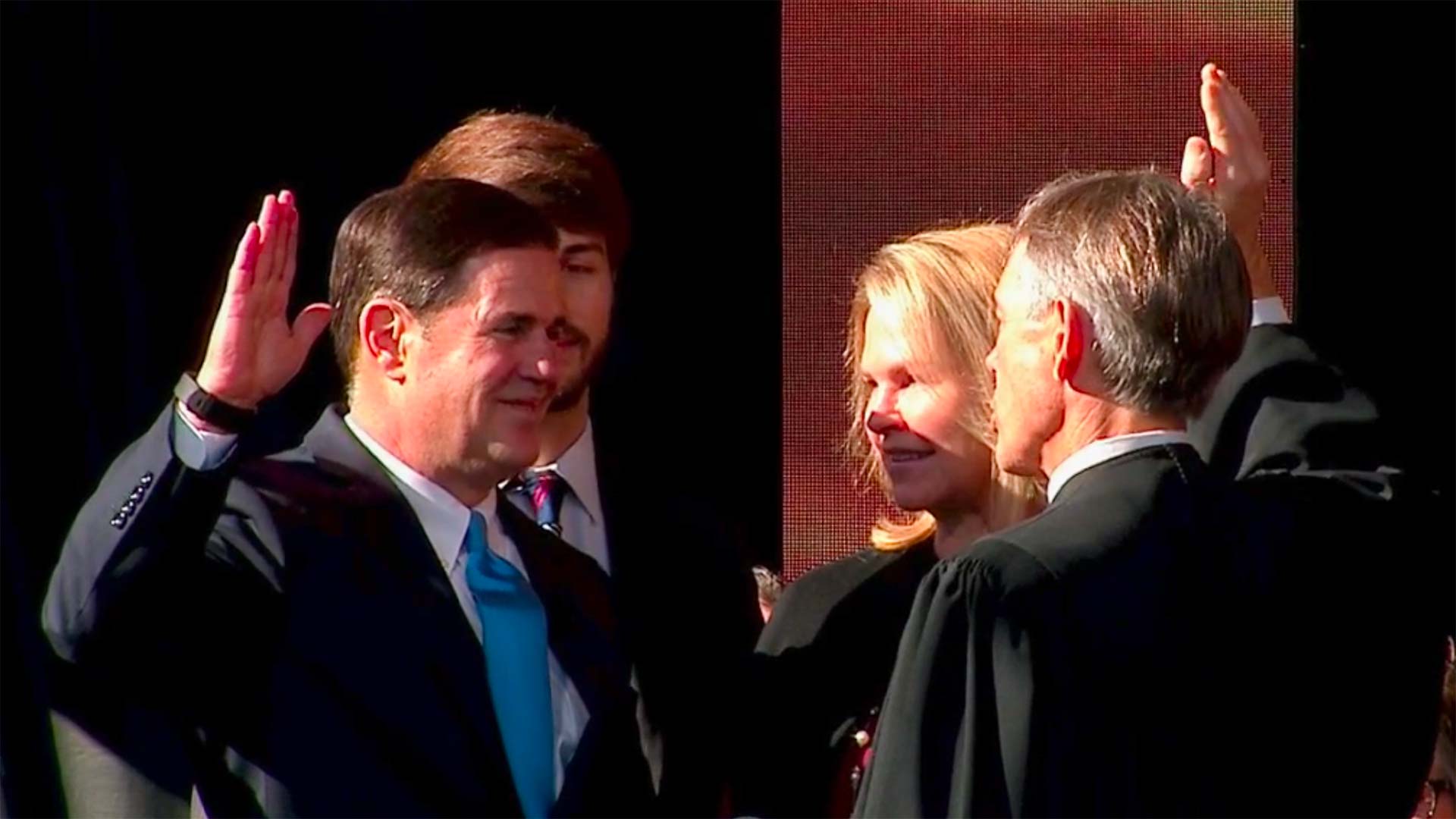 Gov. Doug Ducey is sworn in for his second term, Jan. 7, 2019, in this still image of a live stream of the event.
Gov. Doug Ducey is sworn in for his second term, Jan. 7, 2019, in this still image of a live stream of the event.
PHOENIX — Republican Gov. Doug Ducey starts a second term Monday with inaugural festivities at the state Capitol, accompanied by five other newly elected top state officials who come from both leading political parties as Arizona takes on a purple tint.
Democrat Mayor Robert Uribe of Douglas, who backed Ducey in the November election, was chosen as master of ceremonies for the morning ceremony. The event also included color guard, a native leader's blessing, prayers by a rabbi and a Baptist pastor and F-16 Fighting Falcons flown by the Arizona National Guard. The guard's 108th Army Band was providing the music.
Four grandchildren of the late Rep. Ed Pastor, a Hispanic Democrat who represented Arizona in Congress for more than two decades, were selected to lead the Pledge of Allegiance.
Also taking the oath of office Monday were incumbents Attorney General Mark Brnovich and Mine Inspector Joe Hart and new Secretary of State Katie Hobbs, Treasurer Kimberly Yee and Superintendent of Public Instruction Kathy Hoffman. Hobbs and Hoffman are Democrats and the rest are Republicans.
After the ceremony on the grounds of Arizona's Capitol, a food tasting with fare from Arizona restaurants was planned, as well as a chance for adults and children to meet local sports mascots.
All of the state officials sworn in with Ducey four years ago were Republicans in a state long considered red.
But Arizona Democrats did well in the mid-term election, with Kyrsten Sinema winning retiring Sen. Jeff Flake's seat to become the state's first female senator. Democrat Sandra Kenney was the top vote-getter for one of two open seats on Arizona's five member state utilities commission.
Sinema and Arizona Republican Martha McSally, appointed by Ducey to fill the seat that was held by the late Sen. John McCain, were sworn in on Thursday in Washington with the new class of senators. U.S. Sen. Jon Kyl held the seat a little more than four months after McCain died Aug. 25.
Underscoring Arizona's reputation as a GOP stronghold, Democrats in November failed to make inroads in four Republican-held congressional seats.
But the party split varied in many races, indicating voters analyzed contests and candidates individually. Turnout was high, with nearly 65 percent of Arizona voters casting ballots in November.
The key issues Arizona facing this year include finding more money for education after the statewide "Red for Ed" movement that saw public school teachers go on strike last year, and deciding how to handle a drought contingency plan as water levels at Lake Mead fall to dangerous levels.

By submitting your comments, you hereby give AZPM the right to post your comments and potentially use them in any other form of media operated by this institution.